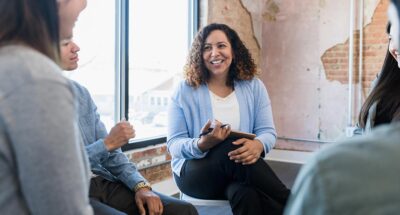Evidence That It Works
In one study, 91 non-Black participants were assigned to a 12-week intervention or a control group. Participants in the intervention group spent time reflecting on their personal biases and how those biases affected their interactions with others. Researchers gave participants various strategies that they could practice to try to reduce their own biases. Results showed that the intervention helped reduce implicit biases while increasing participants’ concern about the impact of discrimination on others.
In another study with 55 White male undergraduate students, those who were instructed to approach an interaction as an opportunity to learn (rather than simply allowed to engage in the interaction without any instructions) experienced less anxiety when interacting with an interracial partner.
Lastly, in a study with 44 Black and White undergraduate students, researchers randomly assigned participants to a control or intervention group. The intervention group took part in a workshop where participants set an intention to connect with members of the group with a different racial identity than their own. Participants then engaged in conversations with each other where they were instructed to try to empathize with their partner. In the control group, participants watched and discussed a documentary about race relations in America. Researchers found that Black and White participants in the intervention group reported improved mood after the workshop. Furthermore, White students also reported an increase in positive attitudes toward Black students.
Why Does It Matter?
Civil courage requires an awareness of injustices and personal biases (e.g., knowledge of how unspoken norms might serve to perpetuate injustices), and a willingness to push back against norms that perpetuate injustices. This practice can support personal growth and self-understanding because it prompts us to be intentional about challenging potentially harmful implicit biases and default thinking in our classrooms, schools, and communities.
In the face of injustice, we all need allies–people to stand with us and provide support as we challenge existing norms. Scholars have long written about the importance of racial justice allies and how to foster a willingness in others to support calls for change. More recently, Williams et al. (2022) proposed that fostering support from others requires that we cultivate greater civil courage. Speaking on behalf of those who are marginalized necessitates courage because we run the risk of facing backlash from dominant groups (or groups in power) when we advocate for the rights of others. For instance, we might face ostracism at work if we push for greater employee diversity. Thus, it takes civil courage to decide to be an ally, and this practice helps us to grow in our own civil courage.








Comments